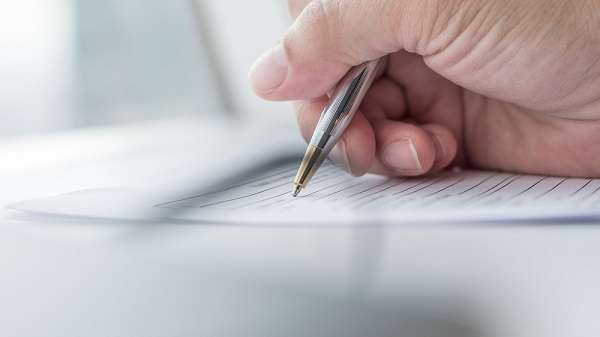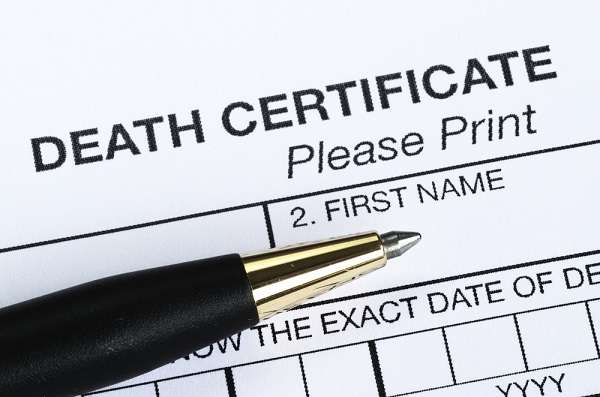- 12/03/25
It’s an unfortunate reality that when someone dies, there are legal formalities that need to be completed shortly after. While these can feel like the last thing you want to be doing at a time of mourning, they’re a necessary step before you can start making funeral arrangements.
In most cases, registering a death is straightforward and simple to take care of. Here’s what you need to do:
The first thing you’ll need to get is a medical certificate of cause of death (MCCD). If your loved one died in hospital and the cause of death is clear, their doctor will normally give you this automatically, together with information about how to register the death.
Occasionally, the doctor can’t give you the certificate immediately as they’re unsure of the precise cause or circumstances of death. In this case, they’ll refer to a coroner to investigate the death which may involve a post-mortem or inquest. Usually, the coroner will issue an interim death certificate so you can go ahead with funeral arrangements and organising probate.

Now you have the MCCD certificate, you need to formally register the death. You can’t do this online, you’ll need visit a register office within five days (or eight in Scotland). Normally you’ll go to the register office closest to where the deceased passed away - find the nearest register office.
Contact the register office first to arrange an appointment and they’ll tell you what else you need to bring, possibly a council tax bill, passport or birth certificate as well as the MCCD. Your visit should take around 30 minutes.
You’ll also be asked to provide some information about the deceased so it’s a good idea to find and keep this information to hand before you visit. This will include:
Although this usually done by a relative of the deceased, It’s not always the case. Deaths can also be registered by anyone who was present at the death, an administrator at the hospital the deceased passed away in or the individual making funeral arrangements.
When you register a death you’ll receive:

Important tip – when you visit the register office, it’s well worth ordering extra copies of the death certificate as you may need to send them to organisations such as banks and building societies when sorting the deceased’s affairs. It will cost you more to order the copies at a later date.
That’s the legal formalities sorted, now you can get on with organising the funeral. Distinct Cremations offer a helpful guide on how to arrange a funeral that can help with your planning.
Losing a loved one is extremely difficult but we're here to help you. You can call our friendly and caring team at any time with your questions on 01543 212000.

There are some important actions to take when you lose a loved one which can vary slightly depending on where they have died. Find out the necessary legal requirements and how we can support you throughout the arrangements.
What to do when someone dies >>
Find out more about our low-cost funeral options for both dignified unattended cremations and intimate attended cremation services. Arrange a funeral that's right for your loved one with the guidance of our comforting team.
Arrange a funeral >>
A funeral can be tailored to your loved one by the poems and readings that are shared, the hymn and music you choose to play or perhaps a heartfelt eulogy given by a loved one. See our inspiration for a personal and meaningful send-off.
Personalising a funeral >>